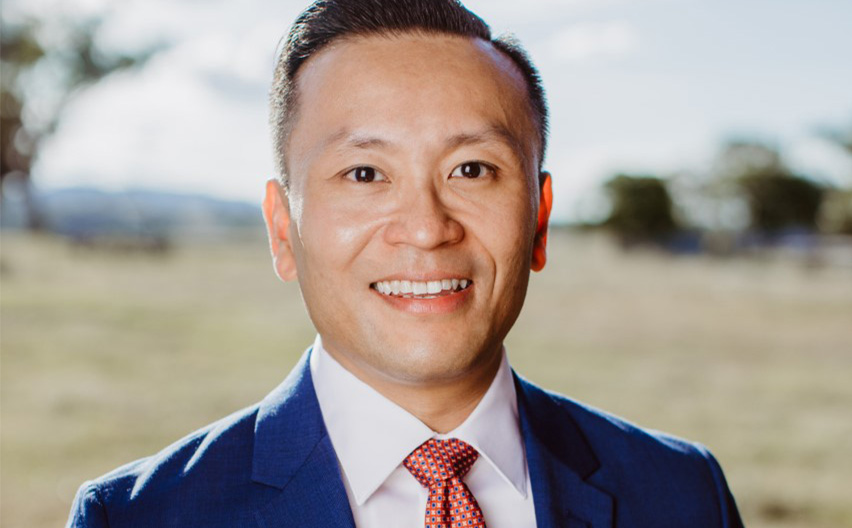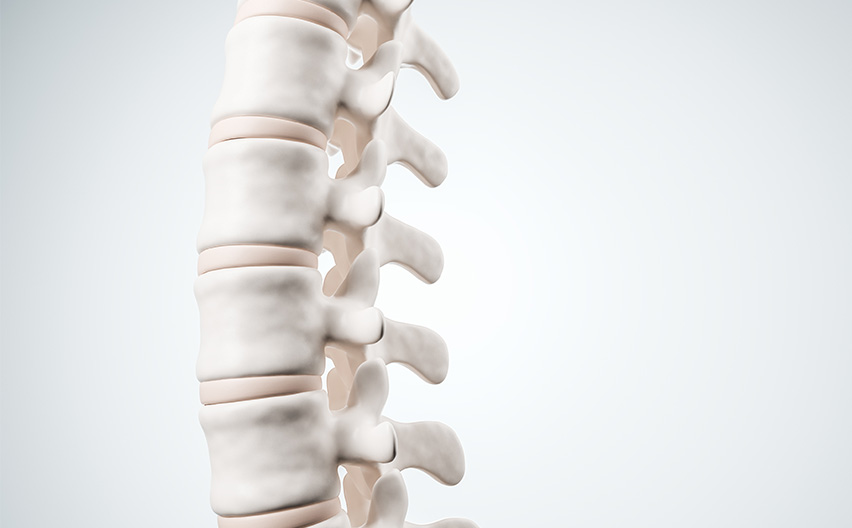


‘Having to make decisions, and good decisions along the way, that’s the hardest thing,’ says Alvin Pun.
Alvin could be talking about his job as a spine surgeon who executes complex, potentially life-altering procedures for his patients, but he’s talking about leaving his home country of Singapore to begin Foundation Studies at Trinity. It was his first time living out of home, and he had a new culture, new people and a new way of living and learning to contend with. Though intimidating at the time, Alvin says the experience helped him grow and he’s glad to have had the opportunity to test himself in a new environment – something that would become a theme as he pursued a career as a surgeon.
Alvin, who was born in Malaysia, initially planned to study business and commerce, following in his parents’ footsteps. But when he realised the business world wasn’t for him, he started to look at other options.
‘I didn't really know what to do for quite a long time,’ he says. After completing Foundation Studies at Trinity, he decided to give medicine a shot, and moved to Sydney to study for a medical sciences degree. Upon graduation, he applied for a postgraduate medical degree ‘because that’s what everyone else was doing’ and was surprised to learn that he was one of five people (from a class of 100) selected for the program. At this point, he admits he still didn’t really know what medicine was or what it would entail.
As he later found out, it would entail a lot.
‘I often say to juniors, "If you want to make money, definitely medicine and surgery is not the way to go”. Because the number of hours you put in and the number of years you sacrifice training to get to that point … you need to understand that it's a long journey and you need to be dedicated to get to where you want to be.’
After finding his way to orthopaedics via a process of elimination, Alvin became incredibly dedicated to his specialisation. He elected to undertake further training and sought to learn from the best in the business around the globe.
‘I thought, to give my patients the best outcome, I really want to know what everyone is doing around the world as part of my sub-specialty training. I chose spine and I went around the world to do different fellowships.’
He tracked down the best spine surgeons in Europe, and found them in Milan, Italy; then he went to China, where he trained at the country’s largest spine hospital in Beijing; and the UK, to practice at Europe’s largest orthopaedic hospital, located in London.
‘I think the most important lesson I've learned is to be more tolerant and to understand the cultures and to know that everyone's different,’ Alvin says of the experience. ‘When you get a patient who is from another culture who doesn't speak English … you don't realise how hard it is for them to express what they're coming in with,’ he says. ‘I’ve become more understanding and openminded.’
Abroad, he also learnt surgical techniques, like operating on the spine via the abdomen and chest, and about technological advances in 3D printing, surgical navigation and robotics. ‘You can take pretty much the whole neck out if [a patient] has tumours or they've got an infection and replace it with 3D printed implants. … Robots can guide you to where you want the implants to be and drill holes for screws very accurately into the bone. … The possibilities are endless.’

Other advancements in medicine that Alvin has been exposed to even include space surgery. After university he spent time at NASA at the Johnson Space Centre in Houston, undertaking an aerospace medical program, where he researched surgery in microgravity – quite a challenge. ‘In space, everything's different because there's no gravity. Anatomy changes and how you have to stabilise the body.’
Though such jaunts sound interesting and exciting, Alvin is quick to point out that being a surgeon isn’t very glamorous, and anyone who stereotypes surgeons as arrogant individuals who are fixated on making a lot of money and driving fast cars are mistaken. ‘I think that's the most misunderstood thing. I don't think the majority of surgeons are like that at all. … And whatever [medical] TV shows there are, it's not like that. You don't walk around with all good-looking people,’ he laughs. ‘It's real people we deal with.’
Though Alvin was drawn to orthopaedics (bone medicine) because he likes that it’s a practical speciality – removing things and putting things back together – that lets you see immediate results, he focuses on the outcome for the patient and always turns to surgery as a last resort. ‘First of all, you have to get the diagnosis correct; that's most important,’ he explains. ‘You’ve got to make sure you've exhausted everything else you can do for them without surgery. If nothing else works, then you talk about surgery.’
Then, perhaps something many don’t think about when they consider the life of a surgeon (and why it costs so much to see a surgeon), is the preoperative planning, which can take days or weeks for complex procedures.
‘[Preoperative planning] involves multiple things like looking at scans of the spine on the computer and measuring all the angles of different things that you want to take out or put in. How do you change it and what needs to be treated or not?’ Sometimes, he consults with other surgeons to get different opinions, then decides on the best course of action.
‘Then, I work out the surgery in my mind. I often say that if I cannot finish the surgery from start to finish in my head, then I shouldn't be doing the surgery. Not only that, I need to know what all the other possibilities are. If something happens, I need to know what my options are. … Once I go in there, nothing should be a surprise.’
Of his career, Alvin says that there are a lot of sacrifices, and lots of ups and downs. But the reward is helping his patients achieve the best outcome possible. ‘You do [surgery] because you want to make a difference; you want to contribute to the community. It’s a service industry.’
Related News
-
News & Stories
- Anzac Day 2024 – Trinity stories
- Book now – Heathers: The Musical
- Guest preacher Chris Mulherin on the intersection of science and religion
- Meet Foundation Studies student Gabriella Sim
- Meet Foundation Studies student Hanadi Alabdouli
- Meet Foundation Studies student Miguel Valmayor
- Meet Gemma and Frederik Le Mesurier
- Meet Nakata Brophy prize winner Jasmin McGaughey
- Meet Paul Oslington, Trinity alum and Director of the St James’ Institute, Sydney
- Meet visiting professor the Hon Justice Joe Williams
- Pioneering women and the story of Janet Clarke Hall
- Visit David Frazer's new exhibition: All that you've loved
- What is Eid al-Fitr?
- Events
- Art
- Music & Choir
- Campus Development Projects
- Visiting Scholars & Lectureships
- Accommodation for Visitors
- Short Programs
- Work at Trinity



.jpg?lang=en-AU&ext=.jpg)





.jpg?width=300&height=300&ext=.jpg)

.jpg?width=300&height=300&ext=.jpg)
